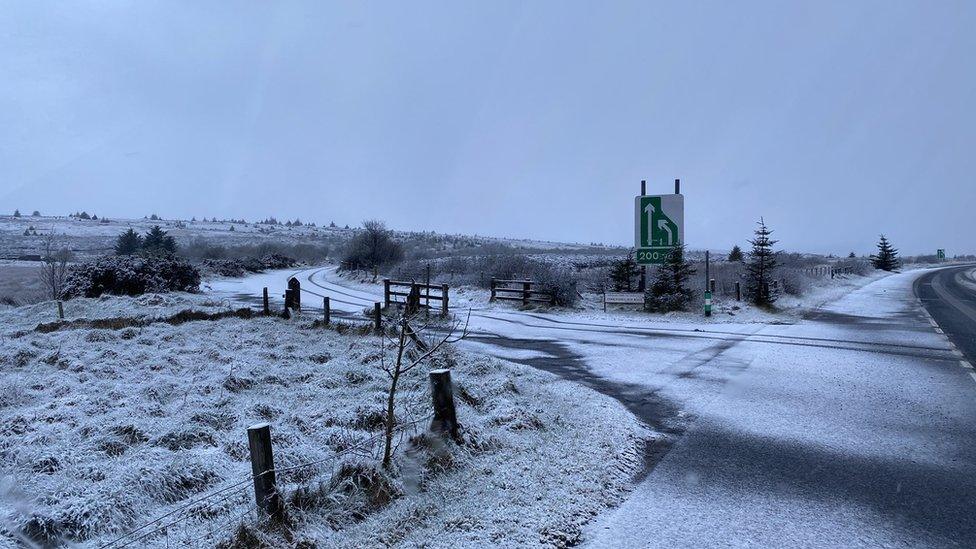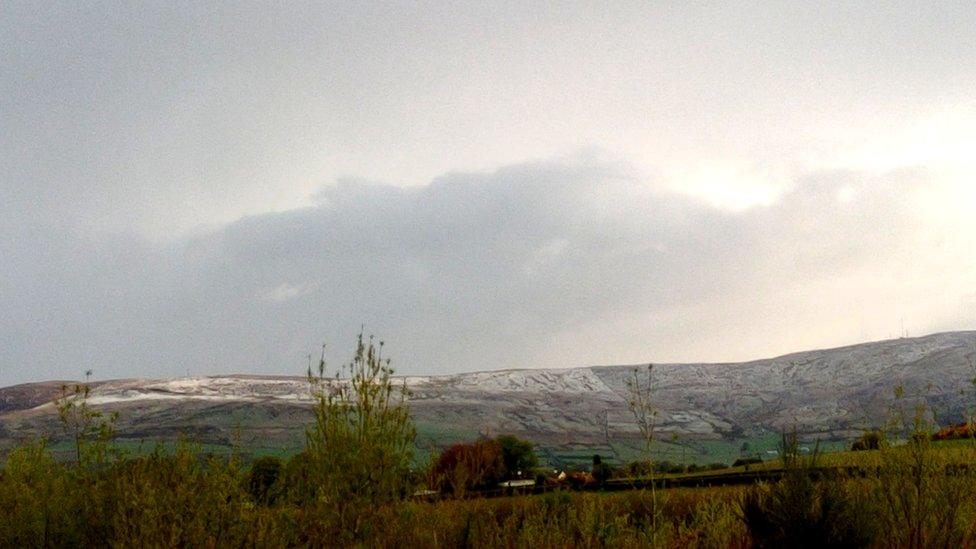Northern Ireland's snowy start to May is rare but not unprecedented
- Published

The Glenshane Pass was covered in a blanket of snow
Northern Ireland is currently experiencing an exceptionally cold spell of weather for early May.
Snow was lying on the Glenshane Pass early on Wednesday and was clearly visible on the hills around Londonderry.
The heaviest showers could fall as sleet or snow throughout Wednesday on the highest parts of the Sperrin mountains or the Antrim hills.
That will especially be the case as temperatures fall on Wednesday night.
The other element of Wednesday night's weather will be frost.
It is not a night to leave seedlings outdoors and in the coldest spots we could see temperatures drop as low as -4C
Not the first time
So how often does this happen?
It is certainly not an annual event, but it does happen from time to time.
A couple of listeners to the BBC's Good Morning Ulster programme texted to say they had memories of snow in early May.
One lady remembered 8 May 1997, because she gave birth in Dungannon hospital and has video, presumably of the snow, to prove it.
Another mum remembered pushing her pram in snow in May 1981.

Snow on the hills around Londonderry on Wednesday morning
According to the Met Office, the snowiest May on record was most likely in 1979, when 342 weather observation sites reported snow on 2 May across the UK as a whole.
This snowy spell lasted through the whole of the first week of that month. The light snow showers we've seen this May seem slight in comparison.
Also according to the Met Office, the average number of days of falling snow in Northern Ireland in May is 0.3 days, with 0.0 days of lying snow.
Warm rain
April was also cool, but it was dry and sunny - the sunniest April on record across NI with 217 hours of blue sky and the sixth-driest on record with just 24.8mm for the whole month.
A complete contrast to the cold, wet bank holiday Monday when more rain fell in 24 hours than in the whole of last April, particularly in County Down.
Looking ahead, temperatures will slowly come up again and eventually get close to the average this weekend, but it will be unsettled with spells of rain and strong winds at times.
It is likely to be "warm rain" rather than the "freezing rain" that fell on the bank holiday.